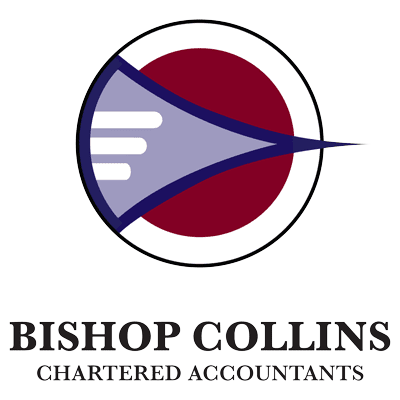Warning! This article may contain elements of self-promotion!
While I’ll do my best to limit the self-promotion and provide objective advice, I must disclose that we do offer outsourced accounting services from bookkeeping to Virtual Chief Financial Officer (VCFO) services.
Now that is clear….
What is an Outsourced Accountant and an In-House Accountant?
Outsourced Accountant
An outsourced accountant is an external accountant or professional group of accountants which provide accounting services to small and medium sized businesses. The services can include the entire accounting and financial requirements of a business, or any part of those requirements, which typically include:
- Payroll
- Accounts payable
- Accounts receivable
- Stock management
- Asset register
- Bank reconciliations
- Inter entity reconciliations
- Financial management reporting
- Business advice
- Strategic advice
External means the accountant/s are employed by another business that specialises in providing accounting services. Outsourced accountants are hired under a contract or service agreement.
In-house Accountant
An In-house accountant is someone who does all the above mentioned work, but is an employee of the business.
What are the Pros and Cons of an In-House Accountant?
The following pros exist with an in-house accountant:
- Availability – As they are employees of the business, they work on the business premises and are available during the working hours they are employed for e.g. 1, 2 or 5 days per week.
- Skin in the game – Skin in the game means it’s in their financial and career interest to help the business succeed by doing the best they can. It can be done by giving them equity in the business or bonuses for performance.
- Strong business relationships – A strong accountant in the company can add to the culture and effectiveness of the group by developing strong, trusting relationships with the owner, other key staff, external creditors, and even clients of the business.
The following cons exist with using an in-house accountant:
- Limited expertise – An in-house accountant will generally be limited by their level of expertise. A more senior CFO or Financial Controller will generally not be well accustomed to the day-to-day transactional processing of the business, as it is not cost efficient for them to do this. Likewise, a bookkeeper is unable to provide the financial strategy and support a business owner, or board of directors, will need. In order to combat this, it requires the hiring of multiple levels of expertise in an in-house accounting team. You could, however, find the unicorn that can do everything!
- Higher costs – The business may not need a full-time accountant at varying stages of its growth from start up to the next phase. Likewise, the business may need 1.5 staff to complete the bookkeeping function. Hiring full-time staff can result in greater cost than needed. A full time Bookkeeper can cost from $70,000 to $90,000 including all on-costs such as workers compensation, superannuation, payroll tax and leave entitlements.
- Disruption to operations – Employed staff have entitlements to sick leave, annual leave and long service leave. This can disrupt the operations of a business.
- Finding qualified staff – Labour availability and staff shortages can severely disrupt a business. I recently had a client say to me “I have never had so much work and not been able to deliver it due to no availability of staff.”
What are the Pros and Cons of an Outsourced Accountant?
The following pros exist with an outsourced accountant:
- Cost reduction – Using a team of external professional accountants has the advantage of accessing the right resources at the right time. A combination of a bookkeeper and a more senior accountant can cost over $200,000 per year. A comparable outsourced accountant can save over $50,000 and come with the following additional advantages.
- Greater level and range of expertise – Professional outsourced accountants have a team of experts in a range of fields from payroll and transaction processing to financial reporting and tax expertise. You will have access to a greater range of expertise in all areas of business. The knowledge your outsourced provider has gained means they can share great ideas and cost saving measures that they see other businesses succeeding in. This increases your businesses productivity so owners and staff that are employed can concentrate on making more product, improving service, quality and delivery, and thereby increasing your revenue.
- Quality and up to date expertise – Professional outsourced accountants must continue their education each year to keep up with the latest regulatory changes and accounting developments or face being kicked out of their professional body.
- Fraud prevention – A big issue in companies experiencing high growth and large amounts of cash reserves. A professional outsourced accountant is trained in recognising fraud or where controls are weak in an organisation such as the same person in accounts receivable as the person that does the banking and the bank reconciliations. Outsourced accountants are also far less likely to commit fraud than an employee, as they don’t possess the connection to all parts of the company. They will also have multiple levels of review or oversight within their own organisation, such as manager reviews and job rotation that prevent this risk. Finally self interest is the greatest prevention. The incentive to prevent any damage to their business’ reputation is paramount to their existence.
- Flexibility – A professional outsourced accounting team can be increased or decreased without having to follow very strict Fair Work labour laws giving a business the ability to be flexible and adaptable.
The following cons exist with using a professional outsourced accountant:
- Unexpected costs – Like building a house or renovating, when the owner sees what is possible and what additional options are available, it is easy to start requesting more and more from the outsourced accountant. It’s important to have defined tasks and ensure any additional requests are agreed before completion so that the price can be reviewed before starting the work and surprise costs eliminated.
- Face to face contact limited – This can be a disadvantage for business owners that need to have a resource there ready when they’re in the workplace. Business leaders need to agree on the level of contact they require and when they can access the different levels of expertise available to them. In a way, this can be a less flexible alternative and require more management of how the different levels of the business can access the outsourced accountant resource. This is where choosing the right outsourced partner organisation is important.
- Choosing the wrong accounting partner – While this is true for any employee it is also true for your choice of an accounting partner. Make sure they belong to a professional body such as a Chartered Accountant CA, Certified Practicing Accountant CPA or other national accounting body covered under professional standards legislation. Do your due diligence and ask questions about the range of skills they have available at their organisation.
- Overseas concerns – If you are concerned with your professional outsourced accountant having part of their service performed overseas and your financial data being accessed overseas, make sure you have a conversation with your provider to select your preference.
How do you Transition from In-House Accounting to Outsourced Accounting?
With the development of the latest Cloud based accounting software platforms it really is very smooth to transition to an outsourced accountant. COVID and technological advancements have perfected the remote working ability of accountants.
The hardest part is finding the right professional outsourced Accountant to partner with!







